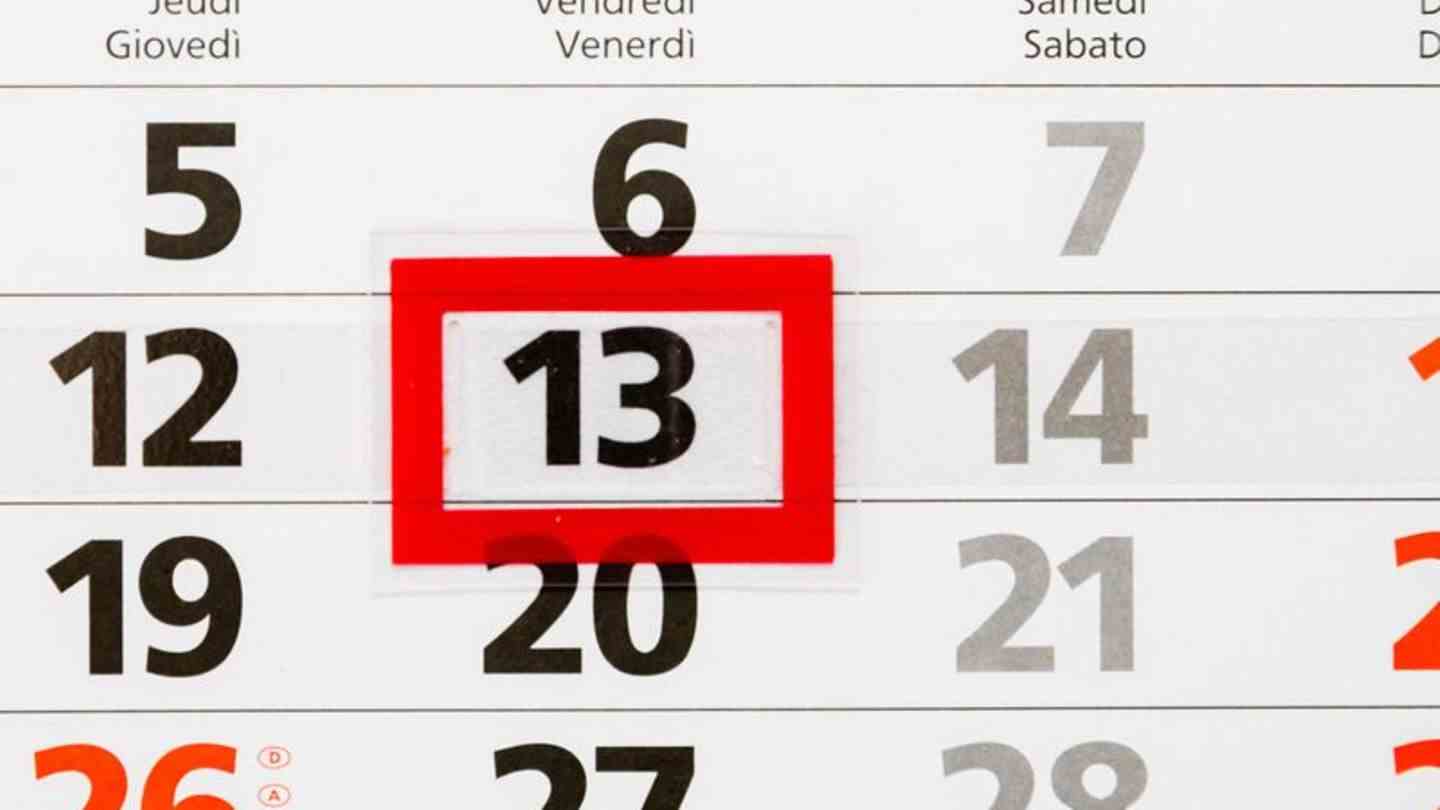superstition
Friday the 13th: Why “bad luck” sticks to misfortune
A calendar shows Friday the 13th. Photo: Christoph Soeder/dpa
© dpa-infocom GmbH
When Friday the 13th is knocking at the door, quite a few fear misfortune and misfortune. When there is talk of mishaps, a black liquid substance is often the focus.
If the 13th day of a month falls on a Friday, some people are particularly cautious. While it appears up to three times in the calendar in certain years, the supposed date of the accident in 2022 only threatens once: in May.
There is one thing that superstitious people want to avoid as much as possible: bad luck. Not that they feel the same way as the lazy Marie in the Brothers Grimm fairy tale of “Frau Holle”, who, after a strong shower from a cauldron full of bad luck, has to bemoan her fate quite crippled. “Low luck” or “to have bad luck” are common phrases that connect the liquid to evil.
On a Friday the 13th, some believe the risk of a mess is particularly high. The supposed unlucky number is linked to the unlucky day. According to Christian tradition, Adam and Eve were expelled from paradise on a Friday, and the Romans nailed Jesus Christ to the cross. The number, in turn, owes its sometimes bad reputation to a certain extent to 12, which itself stands for perfection. Their harmony is then considered to be disturbed: if, for example, the 13th fairy appears in the fairy tale, the fiasco is almost inevitable.
The origin of bad luck
But how did it come about that bad luck and misfortune belong together? You can read, for example, the reference to Büttner’s work area. Barrels are coated on the inside with the substance that is produced during the distillation of wood, oil or coal – to store beer. The assumption: Anyone who later finds pieces of the black liquid in the beer glass is literally unlucky.
But the ancient method of hunting with the help of the sticky substance is probably better known. As early as the Middle Ages, branches were coated with pitch so that birds would get stuck on them. An animal caught in this way literally became “unlucky”. At some point, the expression was also found in the language – similar to “going on the hook”.
German is full of phrases with the liquid known since the Stone Age. Sayings such as “such bad luck” or “unlucky” are pictorial, short and always the same formulations, says proverb expert Rolf-Bernhard Essig in an interview with the German Press Agency.
Ancient language images
Their origin is often difficult to prove. They arose, for example, in earlier times when everyday situations became pictorial expressions in the language, as the cultural historian Andres Furger wrote in his book “The Red Thread. From the figure of speech to the historical picture». There is a lot of speculation when it comes to the interpretation of idioms, says Essig. It’s easy if they come from the Bible, fables or anecdotes.
In the middle of the 19th century, for example, the case of the student Victor von Hase showed how quickly a formulation can spread. In court he said: «My name is Hase, I deny the general questions. I dont know anything.” According to Essig, the short form of the sentence became commonplace in the language within just two years.
In connection with “having bad luck”, some also bring the so-called machicolations into play. Through these bay windows with narrow slits on medieval castles, hot bad luck is said to have been poured onto the enemy during an attack.
But this idea of defense probably dates back to the 19th century. According to the Institute for Historical Regional Studies at the University of Mainz, it is historically only sporadic and more likely to be associated with water than with bad luck. Pitchwifes were also there to be able to talk to strangers through the narrow opening without having to leave cover.

